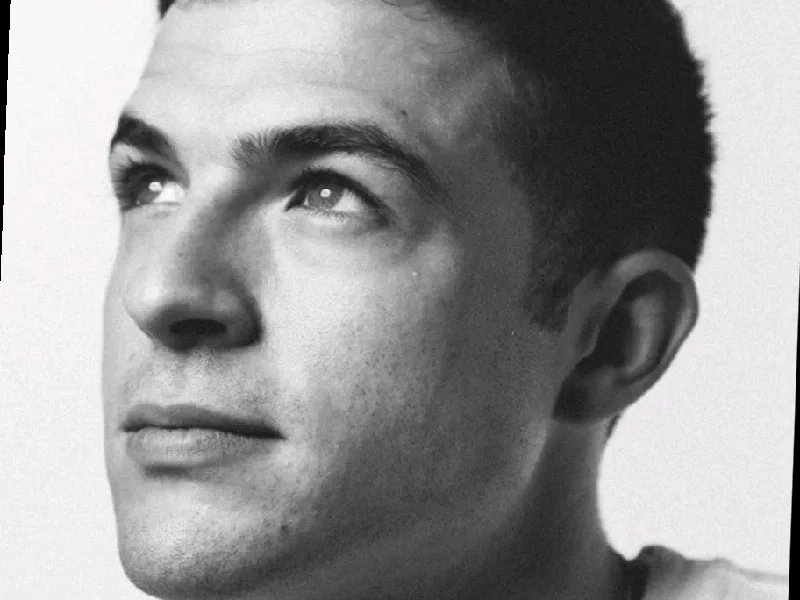In Her Corner: Medically Advocating for My Loved One

Daniel Jobbins

Daniel Jobbins

Hospitals are a strange place.
Obviously, I’m very grateful they exist and even more grateful for the people who chose to spend their careers in these establishments, but I find them strange because of the juxtaposition of emotions they foster.
While nurses and doctors are introducing the newest members of the human race at the maternity ward in block C, across the courtyard in block B, people are learning that their time on this earth might be limited after doctors have discovered a metastasis that’s spread beyond the tools they rely to contain it.
Emotions always seem to be running high in hospitals and this environment for any regular patient of the hospital is exhausting. No level of stoicism is immune to the tension that medical uncertainty brings. So as a patient, trying to remain neutral, calm, and inquisitive while doctors do their best to translate medical jargon and how it applies to them can seem near impossible.
This is where we come in. The Caregivers.
We, as caregivers, also experience all of the above, so that doesn’t make this part any easier. But while our loved ones deal with the battle inside of their body and the emotions that come with it, us caregivers can act as the patient’s neutral, calm, and inquisitive mind in the medical setting.
Every situation is different, but from my experience as a cancer caregiver for my girlfriend I want to share what I feel are some universal challenges I experienced as well as some strategies that helped me overcome them;
Let’s be honest; medical terminology is overwhelming.
When dealing with cancer; understanding how this complex medical jargon applies to the patient’s situation is difficult at best.Given that no two diagnoses are the same, every patient has different nuances that apply only to them. As a caregiver it is important that we do our best to understand what those nuances are to the best of our abilities. So that when the time comes to ask questions to the doctor, you can ask thoughtful, pertinent questions that will allow you to provide better care, given your loved one’s situation.
Questions! Always Come prepared with a list of questions.
Ask your loved one what it is they would like to know at this point in time and note it down. Set some time aside for yourself, and if possible, do some research to try to find answers to any of these questions. Chances are this will only lead to more questions, but that’s great! –You’re building up a bank of knowledge regarding the medical situation of your loved one.
Doctors don’t have all the time in the world, so if you find yourself with a list of questions longer than the christmas list of a 6-year old suburban kid try your best to categorize into no more than 3 categories and then prioritize the questions within each category. For example: 1) Treatment Options 2) Biological processes 3) Nutritional and Supplemental
People love to talk about what they know– especially doctors. So when the time comes for YOU to ask questions (always let your loved one express their comments and questions before you) you can say something like: “So I have a lot of questions. I know we can’t get to them all today, but I’ve categorized my questions into these three categories X, Y, & Z. Based on these categories do you feel one of them is of priority right now or can I ask you my top 2-3 questions from each category?”
Seeing a loved one go through medical treatment(s) can evoke strong emotions which can make it difficult for the caregiver to remain composed during medical appointments– this can lead to important information slipping through the cracks.
Make it clear to the medical professional that you will be taking notes to get as much information as possible during the visit.
Making sure that you have done the proper preparation from challenge #1 will help here. Bring a notebook with pens to every doctor’s appointment to jot down important points. You don’t have to write down verbatim what the doctor is saying, but bullet-pointing the key takeaways during the appointment will allow you to revisit those notes when the time is right. No one is judging you on spelling, so trying to spell “Cyclophosphamide” correctly with a shaky hand isn’t going to help (speaking from experience). Just abbreviate and keep it simple. You could even ask the doctor to quickly sum up the key takeaways at the end of the appointment.
The healthcare system is bureaucratic, overwhelming, and sometimes seemingly on the edge of total burnout.
COVID obviously didn’t help, and now many hospital employees are overworked– this can mean delays and scheduling issues. It’s been common for us to show up early to an appointment only to find ourselves glued to the triage screen while also watching the hour hand on our watch move further and further away from the original number the appointment was scheduled for. (Not so subtle analog plug) My girlfriend and I make bets on how delayed our doctor appointments will be (the winner would get a scone from the delicious hospital cafe on the ground-floor).
No one person or thing is the cause of this delay, so remember that venting frustrations to the receptionist or medical staff isn’t going to help. The time for your appointment will eventually come.
During one of our oncology appointments we got my girlfriend checked in and took our spot in the waiting room on the only two empty chairs in sight. The hospital was at peak busyness. Realizing that we were in for a wait, I decided to run to the hospital cafe and grab a coffee.
I was in a particularly good mood that morning and I don’t know what exactly prompted me, but on the way out of the waiting room, I passed by the receptionist desk to ask if they would like anything from the cafe– my treat 🙂 The two receptionists, who assumed I was coming to passive aggressively ask why there was such a long wait, looked at each other confused. They happily gave me their orders and then went on to tell me that they were just having a conversation about getting a coffee machine at their desk, because they never have time to go grab one from the cafe. We didn’t get seen any quicker, nor did we get any special treatment from this, however I felt by keeping the receptionists happy and caffeinated, it might help keep the hectic hospital machine operating a tad smoother during a time of peak performance.
I’m not saying you have to bribe medical professionals, but these people have chosen to collect a paycheck by making sure others can properly receive life saving treatment. Sometimes taking an extra step to make their lives a little easier goes a long way, and is something that they will not forget.
It might be challenging to strike a balance between advocating for your partner’s needs and respecting the medical expertise of healthcare professionals. It’s important to be assertive without being confrontational.
Sometimes, we like to think of ourselves as doctors due to the hours we’ve spent scanning WebMD and medical journals. But we aren’t. The medical professionals which you are communicating with, have successfully completed years of med school, they will most likely know more about the biological side and treatment options better than you do. However, you as the caregiver most likely understand the patient on a human level better than the doctor ever will. So when communicating with medical professionals, always come from an inquisitive point of view with the goal of better understanding how to care for the patient. This approach mentally puts you on the same team as the doctor – the best possible outcome for the patient is your shared goal. Even better, IF you have done all the WebMD and medical journal research, you’ll be able to ask more in-depth and precise questions to the doctors.
This one ties together all of the above challenges and solutions. Showing up to every appointment prepared, educated, and respectful goes a long way, and can help doctors anticipate best possible outcomes.
Doctor – Patient relationships built on mutual respect allow for communications to flow more freely. They allow space for medical doctors to empathetically think about HOW they are presenting medical information to patients. On the other side they give patients and caregivers space to express concerns and questions without coming across as confrontational.
Remember, these professionals want the same outcome as you. You are on the same team.
Balancing caregiving responsibilities with personal and professional commitments can lead to burnout.
This one is going to be different for every caregiver, but the one common thread is; you’re going to need to get comfortable with being selfish. Selfish in a– “I need to prioritize my energy so I can show up for my loved one when they need me” kind of way.
This one was hard for me.
I felt like I was in an extended-state of survival mode, and being in survival mode means trying to laser focus on the bare essentials needed to get to the next spot of rest and recovery. For me those bare essentials were;
1. My partner’s health and comfort
2. Ensuring I could continue to work to keep our lights on
This rhythm is different for every caregiver so I wont go into too much detail about what my daily schedule looked like. I will however encourage you to write out a list of habits, places, people, things, art, books…etc that make you feel good and allow you to forget about the outside world even for a few minutes. Then take this list, and if possible try to give a timeframe and location associated with each one. Once you have all the information needed for each entry you can then work on placing it into a schedule and have some time set aside each day that is for YOU to do whatever that list entry is. For example:
By having a bank of these habits, and hobbies written down, I was able to quickly place them in my schedule throughout the week. I became selfish with my time to ensure I always have a reserve tank of energy so that I could properly advocate in the medical setting or show up for my partner when she needed me.
Being emphatically selfish means saying no to certain things that don’t serve your laser-focused-survival-essentials, it means putting your energy and mental well being first before showing up to advocate for the health of your loved one.
Being in my girlfriend’s corner throughout this journey has felt like going 12 rounds with Sugar Ray Robinson.
Although she has been taking most of the jabs and upper-cuts, I’ve been right there in the ring with her, adjusting our footwork and trying to anticipate where the next fist might be swinging from. We still get hit, but with some of the solutions mentioned above, we’ve learnt to bob-n-weave through the uncertainty and roll with the punches. The improvements in our perspective has given me the space as a caregiver to better medically advocate for the person I love the most and it’s made the relationship with a burnt-out medical staff a bit easier to manage.
So no matter what round you are in, I hope some of what I shared will give you confidence as a caregiver the next time the bell rings to signal the start or the end of your next round.

Written by Daniel Jobbins
Your email address will not be published. Required fields are marked *